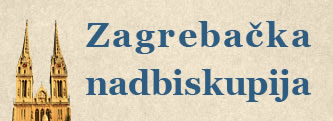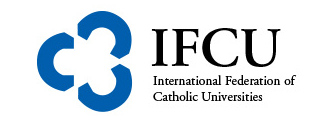Chair of Theology
Course Syllabi
Introduction to Theology
Getting acquainted with the basic guidelines and basic concepts of theology as a science and its interrelation with other (especially humanist and social) sciences, with special reference to: (a) sources and methods within theological disciplines; (b) relations between reason and faith; (c) Christian revelation; (d) the Church’s Magisterium; (e) diversity of theological branches; (f) theology and Christian life.
This course is intended for students of the following years of study:
Undergraduate university study in history, 1st year,
Undergraduate university study in psychology, 1st year,
Undergraduate university study in sociology, 1st year,
Undergraduate university study in communication sciences, 1st year,
Undergraduate university study in nursing, 1st year (full-time and part-time study).
Introduction to Bioethics
Familiarising with the causes of the emergence of bioethics, its historical development, definition and method, main approaches and paradigms, and its place within the field of science and society.
This course is intended for students of the following years of study:
Undergraduate university study in history, 2nd year,
Undergraduate university study in psychology, 1st year,
Undergraduate university study in sociology, 2nd year,
Undergraduate university study in communication sciences, 2nd year,
Undergraduate university study in nursing, 2nd year (part-time study).
Social Teaching of the Church
Understanding the nature of the Church’s social teaching, insight into its historical development, overview of fundamental principles, overview of major social topics in the context of social teaching, and familiarising with the principal Church documents on social teaching.
This course is intended for students of the following years of study:
Undergraduate university study in history, 3rd year,
Undergraduate university study in psychology, 1st year,
Undergraduate university study in sociology, 3rd year.
Main theological topics
Within biblical, historical, systematic and practical theology, key topics are covered (from exegesis and biblical theology, history of dogma and patrology, fundamental theology, dogmatic theology, moral theology, pastoral theology, liturgics, religious pedagogy) providing answers to questions about the historical foundation of faith; historical path of faith; meaning and unity of the revelatory-redeeming event; the way it is grafted into the present.
This course is intended for students of the following years of study:
Undergraduate university study in sociology, 3rd year,
Undergraduate university study in communication sciences, 2nd year.
Theology in Dialogue
This course offers insights into the most significant authors of the 20th century whose theories influenced the understanding of religion. The focus of attention is on their theories linked to religion and their theological reception. Students will get acquainted with relations between theology and the basic ideas of Karl Marx, the link between theology and Auguste Comte’s sociological theory, the influence of Friedrich Nietzsche’s philosophy on theology, the link between Sigmund Freud’s discoveries and theology, the theological reception of Max Weber’s sociological theory, theology’s stand towards Martin Heidegger and Jürgen Habermas, the link between hermeneutics and theology, the relationship between post-modern authors and theology and finally the link between Giorgio Agamben’s philosophy and theology.
This course is intended for students of the following years of study:
Graduate university study in sociology, 1st and 2nd year, elective subject.
Theological Anthropology
A systematic presentation of theological speech of man and human community in light of God’s revelation, the Church’s tradition and theological courses.
This course is intended for students of the following years of study:
Graduate university study in nursing, 1st year (part-time)
Theological Aspects of Dying and Death
Familiarising with forms of dying and historical understandings of death. Understanding different forms of dealing with the end of life. Coping with different views on death: philosophical, religious, social. Knowledge of fundamental contemporary discussions on dying and death.
This course is intended for students of the following years of study:
Graduate university study in nursing, 1st year (part-time).
Nursing Philosophy and Ethics
The basic objective of this course is to acquaint students with the development of morality and development of ethics as a philosophical discipline, development of ethics in nursing and bioethics. Students will be acquainted with the identity, theories and models of nursing, the historical development of nursing and professional ethics in nursing practice.
This course is intended for students of the following years of study:
Undergraduate university study in nursing, 1st year (full-time and part-time).
The Church in the Modern World
This course is intended for students of the following years of study:
Graduate university study in history, 2nd year (direction: Contemporary History).
KORISNI LINKOVI
Marijana Kompes
Kirche und Moderne. Ein theoretischer Zugang zur Korrelation von Kirche, Menschenrechten und Zivilgesellschaft aus sozialethischer Perspektive
Hrvatska Biskupska Konferencija
Katolički bogoslovni fakultet
Fakultet Filozofije i Religijskih znanosti
Centar za promicanje socijalnog nauka Crkve
Stanford Encyclopedia of Philosophy
https://plato.stanford.edu/index.html
Ian Ramsey Centre for Science & Religion



